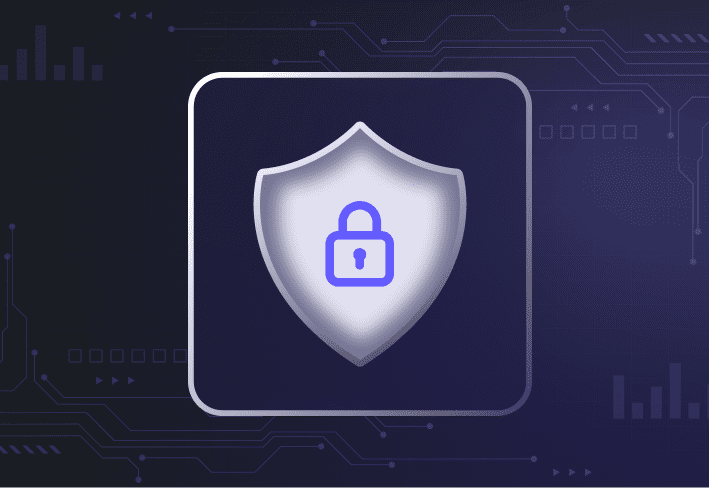Listing the right IT skills on your resume to land the job you want is a skill all its own — and a challenging one at that. So, we asked hiring managers at SmartDeploy and PDQ what skills sysadmins should have on their resumes. The most-cited skills include a blend of soft skills and hard skills, such as pattern recognition, patience, people skills, automation, certifications, and analytical skills.
5 technical skills for sysadmins
1. Technical skills
Here’s a shocker: You need to list technical skills in the technical skills section of your resume. But the technical skills on your list should be relevant to the job you’re applying for. For example, listing cloud computing as a technical skill probably won’t help you land your dream job if your dream job is to be an on-prem Exchange administrator. Cool beans that you’re versatile, but knowing how to run a cloud environment in an on-prem world is kind of like bringing a hammer when you really need a screwdriver. Don’t show up with the wrong tools to do the job.
Here’s a list of some of the most in-demand technical skills in 2024 that might be worth adding to your resume if they’re relevant to your career goals. (Bonus if you’ve got work experience to back up these IT skills!)
Cybersecurity
Data science
Data analytics
Software development
Machine learning
Cloud computing
Programming languages
Web development
2. Pattern recognition
Whether you’re reading logs or troubleshooting why the third-floor printer isn’t working (again), knowing how to look for patterns is one of those IT skills every sysadmin should have. See an interesting entry in a log just before something breaks? Does the printer seem to fail at the exact same time every day? If you spot a pattern, it’s worth a closer look.
3. Analytical skills
Solving IT problems can sometimes feel like swimming in murky waters, trying to navigate the best way forward with limited visibility. Having strong analytical skills with a healthy dose of common sense can help you connect the dots, unravel complex scenarios, and make logical decisions.
4. Automation skills
Knowing how to automate certain tasks is no longer a nice to have. It’s a need to have. Why? Because our collective to-do lists are only going to grow as technology advances.
You can automate many IT tasks, such as resetting passwords and scheduling deployments. These processes, which historically required manual labor and the patience of a saint, continue to run in the background while you’re doing other things. Knowing how to identify these tasks that would benefit from IT automation is a skill many employers value.
Besides, if you’re not actively working toward automating yourself out of a job, do you even work in IT?
5. IT certifications
Take this one with a grain of salt because it’s not quite as straightforward as you’d hope.
Some hiring managers want to see relevant IT certifications on your resume. So, you may be tempted to earn a bunch of certifications. But this can backfire, according to a few of our hiring managers at PDQ.
Of course, list only those certifications that are relevant for the jobs you’re applying to — and be careful about the ones you list. You should always feel confident in your knowledge of a subject before you list a certification on your resume. Seeing a bunch of certifications on a resume can be a red flag for interviewers, while a few (relevant) certifications might give you a leg up. But be sure you can demonstrate the knowledge and real-world experience you needed to earn your certifications in your interview.
Career advice from an IT recruiter: How to stand out, get hired, and get paid
Watch this episode of PDQ Live to hear from an IT recruiter what he looks for when fielding IT resumes — and how job seekers can stand out.
7 soft skills for sysadmins
1. Patience
In IT, the ability to remain patient and unfazed in the face of the most intense, ridiculous, or frustrating situation is key. Even when it seems everything that can go wrong does go wrong, staying calm when tackling problems can lead to more constructive outcomes.
2. People skills
Many assume that sysadmins only need technical skills to do their jobs. But it’s also essential to communicate and work well with others, including nontechnical people. This is especially useful when recruiting management support for projects, managing user issues, and building strong, collaborative teams.
3. Investigative skills
IT admins also have to be good investigators, asking the right questions, identifying critical clues, and spotting anomalies or inaccurate information. Knowing how to Google for information also comes in handy when deducing solutions to issues.
4. Resilience
IT work can be stressful. Building mental and emotional resilience enables you to persevere through difficult moments without getting discouraged or demoralized in the long run. When you’re handling issues during a time-sensitive cutover at 1 a.m. and you’re down to your last energy drink, grit is likely the only thing that will keep you going.
5. Ability to learn quickly
Mistakes happen. There’ll always be things you don’t know. Also, technology evolves quickly, and what you do know may no longer be relevant. Being resourceful enough to learn from what went wrong, adapt quickly, and gain more IT know-how on the job makes you much better at it.
6. Ability to develop healthy coping mechanisms
Too many folks in the industry suffer in silence, working to the point of burnout without even realizing it. The ones who manage not to burn out have learned to handle stress without self-destructing, ask for help when needed, and maintain a healthy work-life balance by making time for people and activities they love outside of work.
7. Staying positive
Beneath their wicked sense of humor, IT admins tend to be a cynical, self-deprecating bunch. Being able to cultivate and sustain a positive mindset — by assuming good intentions, building a strong support system, and taking care of your physical and mental health — can help prevent you from getting sucked into a cycle of negativity.
Common challenges that sysadmins face
Seasoned IT pros know that the secret to survival lies in developing these critical skills that enable them to weather storms and keep their heads above the water. For the benefit of the uninitiated, our team laid out the five most common challenges IT admins may face in their careers.
Being treated like Best Buy’s Geek Squad
Contrary to popular belief, IT is not responsible for fixing every electronic item we own. Nor are they responsible for facilities or building maintenance. Yet there are people who still submit tickets asking IT to help with changing lightbulbs or fixing the projector in the conference room. Or, you know, putting out fires. Literal fires.
A lack of awareness about what IT does
Non-IT people don’t always know what IT teams do and the vital role they play in ensuring that day-to-day operations run smoothly. This includes management, who may only see IT as a cost center rather than a proactive function that can elevate the business. This misunderstanding can lead IT professionals to feel underappreciated, unsupported, and burdened with misplaced expectations.
The XY problem
It’s hard to troubleshoot when you’re not given an accurate picture of what’s really going on. The XY problem is one where users seek help with their attempted solution (Y) — mistakenly identified as the problem — instead of the actual problem (X), much to the confusion of anyone attempting to resolve the root issue.
Not having enough time to learn
Technology is constantly on the move and keeping up requires a lot of time and effort. IT admins are expected to be experts at all things technology related yet are not given the time or opportunity at work to pick up new skills and knowledge.
Burnout
Enduring long, intense hours with little or no support also results in high levels of burnout within the field. Unlike stress, which is a normal and momentary response and can be motivating, burnout is a prolonged state of overwhelming mental, physical, and emotional exhaustion. Of all the challenges that IT admins grapple with, burnout is probably the most serious and overlooked.
No job is worth sacrificing your mental health and happiness. If you're feeling burned out at work, it may be time to brush up your IT resume and look for opportunities elsewhere.
Listing the right IT skills on your resume to land the job you want can feel like flinging spaghetti at the wall. But with the right balance of technical skills and soft skills, you’re well on your way to landing that dream role!
Besides developing these critical skills, IT pros can also advocate for their own success with tools like SmartDeploy that empower them to work more efficiently. By using SmartDeploy to streamline endpoint management and automate daily tasks, it frees up time and resources that can be spent on more high-impact projects, learning new skills, or just taking a much-needed break. Learn more from our live demo or download a fully functioning free trial to see what else you can do.



